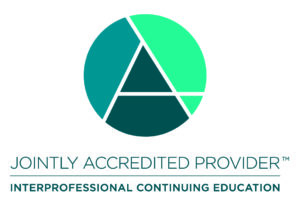Stuff That’s Loud
Integrating ERP and ACT for Youth with Anxiety and OCD
About This Course
Do you feel unsure about how to treat the children and adolescents who come to your practice with anxiety or OCD? Are you hesitant to use exposure therapy because it’s tough to ask youngsters to face their fears? Or do you find young people with anxiety getting stuck in treatment, and you’re not sure why? If so, this course is for you.
Youth with anxiety and OCD are often overwhelmed with “stuff that’s loud,” or thoughts, emotions, and bodily sensations that can be terrifying. Thus, they get stuck in spirals of avoidance that lead to deep social, academic, and family costs. Without effective therapy, this can go on for months or years. Despite the need for intervention, it often takes families years to find clinicians trained in exposure-based treatment, a potent and effective approach. However, many clinicians are hesitant to engage young people in Exposure and Response Prevention (ERP) because it’s challenging to help individuals face their fears; a significant proportion of youngsters refuse treatment; of those who engage, 20-40% fail to make or maintain gains.
During this course, Lisa Coyne and Ben Sedley will teach you how to use exposure-based treatment from a process-based perspective, tied to evidence-based principles. You will learn about exposure from the bottom up, to look at the barriers in using exposure in your own practice, and to use this approach for young people flexibly, with various anxiety disorders, OCD, and across commonly comorbid conditions. They will show you how to integrate ERP with basic acceptance and commitment therapy (ACT) so that you can help transform the lives of young people who are suffering with OCD and anxiety.
Based on strong scientific evidence and delivered by two master clinicians with years of experience in work with anxiety and OCD in outpatient and residential levels of care, this 8-week course will empower you to help young people with anxiety and OCD in their struggle with the “stuff that’s loud” through shaping curiosity, willingness, and flexibility. Lisa and Ben will show how to motivate and engage clients, how to address common stuck points in exposure, how to teach youngsters to do exposure therapy well, and how to support robust generalization. This course will help you to strengthen and expand your practice with children and teens with OCD and anxiety, especially when they feel stuck, or are difficult to motivate, or are moving slowly through treatment.
During this course, Lisa and Ben will:
- Help you understand exposure-based treatment in terms of behavioral principles, based on the most current research.
- Address best practices in assessment for child anxiety and OCD to support developing effective treatment plans.
- Help you develop a strong therapeutic alliance that supports engagement in exposure-based treatment.
- Teach you how to conduct exposure-based treatment with various presentations of anxiety and OCD for children 4-19 years old.
- Demonstrate how to integrate specific ACT interventions into flexible exposure.
- Show you best practices for working with families, which is essential to supporting the progress of young people.
- Address your own barriers in conducting exposure-based treatment.
- Support robust generalization and maintenance of gains.
- Troubleshoot tricky, difficult-to-treat cases, and address comorbid conditions.
This training is worth 16 CE credit hours if attended live. While we can only provide CE to those who are present – i.e. logged in – for live presentation(s), all Praxis webinars are recorded for later viewing. Registrants may then access these recordings at any time for up to six months from the conclusion of the training to which they pertain.
Prior to registering, please review speaker-planner conflict of interest disclosures and complete CE information.
Schedule
Session 1: October 18, 2021, 4:30 pm-6:30 pm EDT
Intro to ERP; Inhibitory Learning; Overview of ACT/ERP Model
Session 2: October 25, 2021, 4:30 pm-6:30 pm EDT
Assessment: Functional Analysis and Clinical RFT
Session 3: November 1, 2021, 4:30 pm-6:30 pm EDT
Creating a Secure Base: Therapeutic Alliance, Bond, and Task Agreement
Session 4: November 8, 2021, 4:30 pm-6:30 pm EST
Shaping Curiosity: Mindful Attention and Flexible Exposure; Creating an ERP Menu
Session 5: November 15, 2021, 4:30 pm-6:30 pm EST
Increasing Willingness and Motivation: Creative Hopelessness and Acceptance
Session 6: November 29, 2021, 4:30 pm-6:30 pm EST
Perspective-Taking: Defusion and Self-As-Context
Session 7: December 6, 2021, 4:30 pm-6:30 pm EST
Building Flexibility: Values Discovery and Generalization Work
Session 8: December 13, 2021, 4:30 pm-6:30 pm EST
Troubleshooting: Issues of Function and Context, Building a Support Team
Learning Objectives
Participants will be able to:
- Explain ERP and ACT from a behavior analytic perspective.
- Describe how exposure based on ACT differs from exposure conducted from a traditional habituation model.
- Prepare a functional behavioral assessment and case conceptualization.
- Utilize this process in order to develop a collaborative exposure plan with clients.
- Build an effective therapeutic alliance base that supports exposure engagement.
- Use present moment awareness to support effective engagement in exposure.
- Employ creative hopelessness to develop shared agenda.
- Use clinical RFT techniques to coach exposure engagement.
- Use defusion and self-as-context exercises to support exposure engagement.
- Use values exercises across contexts and comorbid conditions to support generalization and maintenance.
- Describe how to effectively address stuck points with challenging clients.
Continuing Education
Please review complete CE and conflict-of-interest disclosure information prior to registering. This live online course is sponsored by Praxis Continuing Education and Training and is approved for 16 CE Hours by the following listed below. There was no commercial support for this activity. None of the planners or presenters for this educational activity have relevant financial relationship(s) to disclose with ineligible companies whose primary business is producing, marketing, selling, re-selling, or distributing healthcare products used by or on patients.
Praxis CET maintains responsibility for the program with the CE approvals outlined below:
-
Joint Accreditation:
 In support of improving patient care, Praxis Continuing Education and Training, Inc is jointly accredited by the Accreditation Council for Continuing Medical Education (ACCME), the Accreditation Council for Pharmacy Education (ACPE), and the American Nurses Credentialing Center (ANCC), to provide continuing education for the healthcare team.
In support of improving patient care, Praxis Continuing Education and Training, Inc is jointly accredited by the Accreditation Council for Continuing Medical Education (ACCME), the Accreditation Council for Pharmacy Education (ACPE), and the American Nurses Credentialing Center (ANCC), to provide continuing education for the healthcare team. - Nursing: Praxis Continuing Education and Training, Inc designates this activity for a maximum of 16 ANCC contact hours.
- Physicians: Praxis Continuing Education and Training, Inc designates this live internet activity for a maximum of 16 AMA PRA Category 1 Credits™. Physicians should claim only the credit commensurate with the extent of their participation in the activity.
-
Psychologists:
 Continuing Education (CE) credits for psychologists are provided through the co-sponsorship of the American Psychological Association (APA) Office of Continuing Education in Psychology (CEP). The APA CEP Office maintains responsibly for the content of the programs.
Continuing Education (CE) credits for psychologists are provided through the co-sponsorship of the American Psychological Association (APA) Office of Continuing Education in Psychology (CEP). The APA CEP Office maintains responsibly for the content of the programs. - Social Workers: As a Jointly Accredited Organization, Praxis Continuing Education and Training, Inc is approved to offer social work continuing education by the Association of Social Work Boards (ASWB) Approved Continuing Education (ACE) program. Organizations, not individual courses, are approved under this program. State and provincial regulatory boards have the final authority to determine whether an individual course may be accepted for continuing education credit. Praxis Continuing Education and Training, Inc maintains responsibility for this course. Social workers completing this course receive 16 clinical continuing education credits.
- Drug and Alcohol Counselors:This course has been approved by Praxis Continuing Education and Training, Inc, as a NAADAC Approved Education Provider, for 16 CE hours. NAADAC Provider #165310, Praxis Continuing Education and Training, Inc, is responsible for all aspects of its programming.
-
National Counselors:
 Praxis Continuing Education and Training, Inc. has been approved by NBCC as an Approved Continuing Education Provider, ACEP No. 6759. Programs that do not qualify for NBCC credit are clearly identified. Praxis Continuing Education and Training, Inc. is solely responsible for all aspects of the programs.
Praxis Continuing Education and Training, Inc. has been approved by NBCC as an Approved Continuing Education Provider, ACEP No. 6759. Programs that do not qualify for NBCC credit are clearly identified. Praxis Continuing Education and Training, Inc. is solely responsible for all aspects of the programs. - NY Social Workers:Praxis Continuing Education and Training, Inc is recognized by the New York State Education Department’s State Board for Social Work as an approved provider of continuing education for licensed social workers #SW-0467
- NY Counselors:Praxis Continuing Education and Training, Inc. is recognized by the New York State Education Department’s State Board for Mental Health Practitioners as an approved provider of continuing education for licensed mental health counselors. #MHC-0198.
- NY Psychologists:Praxis Continuing Education and Training, Inc. is recognized by the New York State Education Department’s State Board for Psychology as an approved provider of continuing education for licensed psychologists #PSY-0002.
Prerequisites
Audience
Recommended Reading
Stuff That’s Loud by Ben Sedley and Lisa W. Coyne. New Harbinger Publications: Oakland, CA. 2020.
Stuff That Sucks by Ben Sedley. New Harbinger Publications: Oakland, CA. 2017.
The Mindfulness Workbook for OCD by Jon Hershfield. New Harbinger Publications: Oakland, CA. 2013.
References
Angelakis, I., Pseftogianni, F. (2021) Association between obsessive-compulsive and related disorders and experiential avoidance: A systematic review and meta-analysis. Journal of Psychiatric Research, 138, 228-239.
Craske, M. G, Kircanski, Zelikowsky, M., Mystkowski, J., Chowdhury, N. & Baker, A. (2008). Optimizing inhibitory learning during exposure therapy, Behavior Research and Therapy, 46, 5-27.
Curreri, A. J., Farchione, T. J., Sauer-Zavala, S & Barlow, D. H (2020) Mindful Emotion Awareness Facilitates Engagement with Exposure Therapy: An Idiographic Exploration Using Single Case Experimental Design. Behavioral Modification, 1 – 27
Twohig, M. P., Hayes, S. C., Plumb, J. C., Pruitt, L. D., Collins, A. B., Hazlett-Stevens, H., & Woidneck, M. R. (2010). A randomized clinical trial of acceptance and commitment therapy versus progressive relaxation training for obsessive-compulsive disorder. Journal of Consulting and Clinical Psychology, 78(1), 705-716.
Twohig, M. P., Abramowitz, J. S., Bluett, E. J., Fabricant, L. E., Jacoby, R. J., Morrison, K. L., Reuman, L. & Smith, B. M. (2015) Exposure therapy for OCD from an acceptance and commitment therapy (ACT) framework. Journal of Obsessive Compulsive Disorders, 6, 167 – 173. 33(3), 229-237.
Refund and Cancellation Policy
We understand, sometimes things come up!
Praxis will offer a full refund to registrants of both live and live-online trainings who cancel their registration up to 14 days before the course or workshop start date, minus an administrative processing fee of $30 for a 2-day workshop or online course, and a $50 fee for a 4-day workshop. If cancelled within 14 days, no refund will be issued, however, a credit for the same amount will be applied toward another learning product, which expires within 1 year. Please contact us at events@praxiscet.com to cancel a registration.
